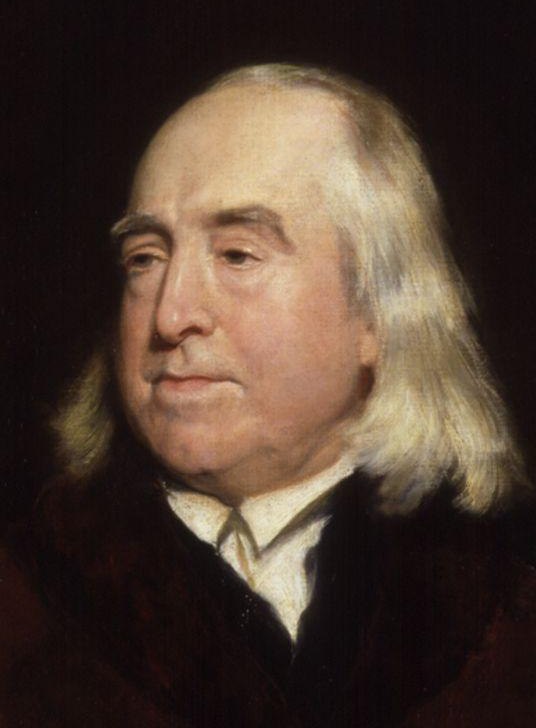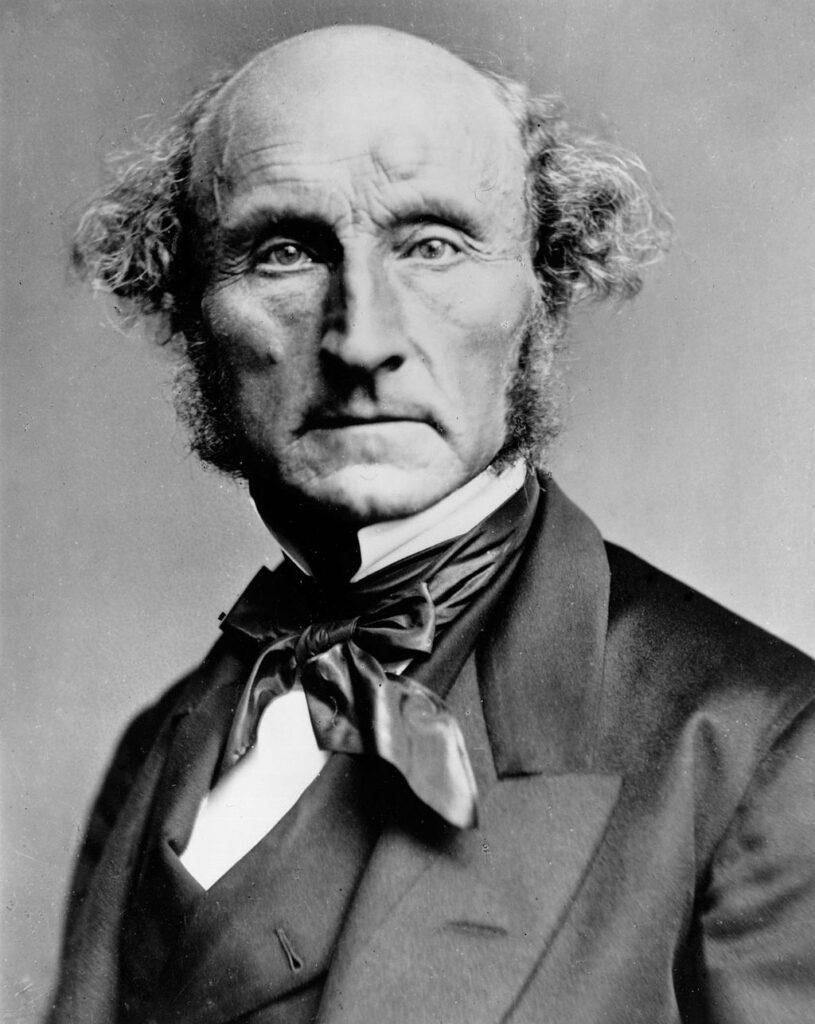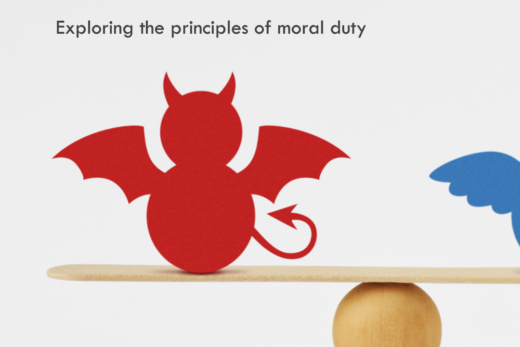Utilitarianism is an ethical theory that fundamentally prioritizes the greatest good for the greatest number. It postulates that the moral worth of an action is determined by its outcome or consequences, making it a form of consequentialism. Unlike deontological theories which stress on duty or rules irrespective of outcomes, utilitarianism is centered on achieving maximum happiness or utility. Its distinctness lies in assessing actions based on their utility, thereby striving for maximum benefit to the most people.
Utilitarianism: A Reason-Based Ethical Approach
Under the lens of utilitarianism, the ethical choice is evaluated by its ability to generate the most beneficial outcome for the largest possible group. It’s this utility maximization that sets the stage for moral reasoning within the utilitarian philosophy. In essence, the ‘rightness’ or ‘wrongness’ of an action isn’t intrinsic but depends on its consequential ripple effects.
When it comes to moral reasoning in business, utilitarianism frequently takes the lead. It allows for a pragmatic balance of costs and benefits, providing a justifiable framework for tough decisions.
The Pioneers: Bentham and Mill
Utilitarianism as we know it today is largely the brainchild of two influential thinkers: Jeremy Bentham and John Stuart Mill.
Jeremy Bentham

Many often regard Jeremy Bentham as the father of utilitarianism. He proposed that actions should aim to increase happiness or ‘utility’. In this viewpoint, the correct moral action is one that maximizes pleasure and minimizes pain, simplifying ethics into a form of hedonistic calculus.
John Stuart Mill

John Mill, a disciple of Bentham, further refined the theory. He distinguished between higher and lower pleasures, arguing that intellectual and moral pleasures should be valued over mere physical ones. For Mill, the quality of pleasure was just as important as its quantity, bringing an added layer of complexity to utilitarian ethics.
Act vs Rule Utilitarianism
Broadly, utilitarianism branches into two categories: act utilitarianism and rule utilitarianism.
Act Utilitarianism
- Concept: Evaluates each act independently based on its ability to generate maximum happiness.
- Pros: Provides a flexible approach and allows for consideration of unique situations.
- Cons: May lead to unpredictability, as moral worth is tied to individual acts and their outcomes.
For example, if lying in a specific situation leads to the most happiness, then act utilitarianism would deem it ethical.
Rule Utilitarianism
- Concept: Advocates for rules that, if universally followed, would lead to the greatest overall happiness.
- Pros: Promotes societal stability and consistency in moral decision-making.
- Cons: May seem rigid and insensitive to unique situations where breaking a rule could lead to more happiness.
For instance, although lying might result in immediate happiness in certain situations, a rule utilitarian would support the general rule ‘do not lie’, as trust and truth-telling tend to maximize happiness in the long run.
The distinction between the two is essential, as it influences the practical implications of utilitarian philosophy. While act utilitarianism offers more flexibility, it risks moral unpredictability. Rule utilitarianism, on the other hand, fosters societal stability but may appear too rigid in exceptional situations. Both these types represent utilitarianism’s strive for the greatest good but via different paths.
Thought Experiment: The Trolley Problem
Consider the famous trolley problem. A runaway trolley is on a course to hit five people, but you can divert it to another track where it will hit one person. An act utilitarian might argue that diverting the trolley – thus killing one person to save five – would result in the greatest overall happiness. A rule utilitarian, however, might uphold the rule not to harm others and not interfere with the trolley’s course, despite the potential for greater harm
Practicality and Limitations of Utilitarianism
Utilitarianism has been praised for its practicality. Its framework can be used to justify military force or other challenging societal decisions. Nevertheless, utilitarianism is not without its critics or limitations.
Predicting Consequences
One criticism lies in our inability to predict the future accurately. Given that utilitarianism relies heavily on outcomes, uncertainty about the consequences can complicate moral choices.
Justice and Individual Rights

Another critique comes from the lens of justice and individual rights. Sometimes, what produces the greatest good for the greatest number may infringe upon individual rights or seem unjust. Here, ethical dilemmas surface, challenging the utilitarian stance.
Imagine a scenario where a hospital has four patients whose lives depend on receiving organ transplants. If a healthy individual wanders into the hospital, their organs could save four lives at the expense of one. This scenario might produce the greatest good for the greatest number but raises significant ethical questions about personal sacrifice and justice.
Modern Interpretations of Utilitarianism
The concept of utilitarianism has seen various adaptations over the years, with contemporary versions such as Preference and Two-Level Utilitarianism enriching the classical theory while attempting to resolve its limitations. These interpretations primarily focus on embracing individual preferences and integrating act and rule utilitarianism for a more balanced approach towards achieving the greatest good.
Preference Utilitarianism
- Concept: Focuses on satisfying individual preferences rather than universally maximizing happiness or pleasure.
- Pros: Respects individual preferences, thus enhancing ethical inclusivity and diversity.
- Cons: Can lead to conflicts when individual preferences contradict or when preferences don’t align with overall societal welfare.
In essence, it’s not just about maximizing happiness, but respecting individual choices and preferences.
Two-Level Utilitarianism
- Concept: Combines elements of both act and rule utilitarianism. Applies rule utilitarianism in general situations and act utilitarianism in unique situations.
- Pros: Balances the need for consistency in moral decisions with the flexibility needed for unique situations.
- Cons: Deciding when to switch between the ‘levels’ can be ambiguous or contentious.
The central idea here is to achieve the best of both worlds, balancing consistency in moral judgments with flexibility for exceptional circumstances.
Conclusion
Utilitarianism, with its focus on achieving the greatest good, provides a robust framework for making ethical decisions. While it is not without its limitations and criticisms, it offers a rational approach that is particularly useful in scenarios that require balancing different interests or outcomes. With the evolutions and adaptations of Preference and Two-Level Utilitarianism, it continues to remain relevant in our modern world. In essence, utilitarianism nudges us to consider the larger picture, to make decisions that maximize happiness, not just for ourselves, but for the greatest number.
Frequently Asked Questions
How does utilitarianism deal with conflicts of interest?
Utilitarianism resolves conflicts of interest by prioritizing the action that generates the greatest happiness or good for the greatest number.
For example, a city council might face a conflict of interest when deciding to build a new airport. Although the construction may disturb local residents, the long-term benefits for the wider community – such as improved transport, job creation, and economic development – might outweigh the short-term disruption. By considering the overall impact on all stakeholders, utilitarianism provides a rational framework for resolving such conflicts.
What is the principle of utility? Can you give an example?
The principle of utility, at its core, refers to the idea of maximizing happiness or good and minimizing suffering or harm.
For example, a doctor deciding on how to allocate limited medical resources during a pandemic might use the principle of utility. They might prioritize those patients whose treatment is likely to result in the most significant improvement in health and quality of life, thus benefiting the greatest number of people with the resources available.
Are there any notable real-world applications of utilitarianism?
Yes, utilitarian principles have been applied in various areas such as public policy, healthcare, and economics. For instance, in healthcare, the allocation of limited resources like organs for transplant often follows a utilitarian approach. This could mean prioritizing patients who, post-transplant, are likely to have the longest survival time or the most improved quality of life. This ensures that the limited organ supply is used to generate the greatest total health benefit. However, this utilitarian method may conflict with other ethical considerations, such as fairness or patient’s rights.
How does utilitarianism influence business decisions and what are some examples
Utilitarianism is commonly used in business to make decisions that provide the most benefit to the most stakeholders.
For instance, a company might choose to relocate its factory to an area with lower operational costs. This could lead to job losses in the current location but also result in higher profits, potentially benefiting employees, shareholders, and consumers in the long run.
The Ford Pinto case is another notable example. Although controversial, Ford’s decision not to fix a known design flaw was arguably utilitarian, as they had calculated that the costs of not fixing the issue were less than the costs of making the fix. However, the public backlash demonstrated that purely utilitarian decisions could also carry significant reputational risks.
Video about Utilitarianism
References
Mill, J. S. (1863). Utilitarianism. Parker, Son, and Bourn. – This is the original work by John Stuart Mill where he lays out his theory of utilitarianism. It’s widely cited in discussions of utilitarian ethics.
Hare, R. M. (1981). Moral thinking: Its levels, method, and point. Oxford University Press. – In this book, Hare introduces the concept of two-level utilitarianism, which combines rule and act utilitarianism.
Singer, P. (1979). Practical ethics. Cambridge University Press. – In this book, Peter Singer discusses various ethical issues, including animal rights and global poverty, from a utilitarian perspective.




